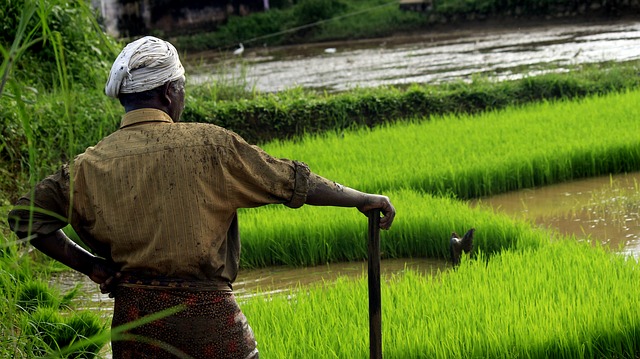Alibaba’s e-commerce platform initiative, Taobao Villages, have proved immensely successful for Chinese farmers and artisans. Could a similar initiative work for India’s agriculture sector?
India remains largely an agriculture-based economy, where 43% of the labour force is dependent on agriculture, yet the sector contributes only 16.5% to the nation’s GDP.
Considering that agriculture is the primary source of livelihood for half of India’s population, digitisation in the sector can uplift many lives. Also, if agri-preneurs in the sector found a direct route to the consumer, it would receive a fair boost.
Read more: NASSCOM SME Advantage Program Offers Discounted Remote Connectivity for SMEs
How can India achieve digitisation in the agricultural sector in a way that transforms the ecosystem to the extent that it can be compared with the Indian IT sector? Such a feat could change our age-old perception of the farmer’s career as one devoid of modern amenities? Is it even possible?
To answer this question, The Tech Panda spoke to Bindu Dalmia, National Chairperson, Committee for Financial Inclusion, Niti Aayog, India. Dalmia will be speaking in the upcoming Horasis India Meeting, which will gather a varied group from around India and the world on 22nd June to discuss a post-COVID-19 situation.

Bindu Dalmia
There exists a vast scope to promote agri-tech and rural-agri-preunership through e-commerce, by linking farm produce with global value chains, as also by corporatising farming, which will offer cultivators economies of scale and better bargaining power in the domestic markets
She believes that digitising the agriculture sector of India through a consumer-to-consumer (C2C) ecommerce platform like the Chinese ecommerce giant Alibaba’s Taobao, can provide Indian farmers the chance for lucrative sales.
“To my mind, India needs to emulate the Chinese paradigm by inducting farmers onto e-commerce platforms, so it ensures the most lucrative real-time prices for their produce,” she says.
She shared excerpts from her findings on how Alibaba’s model reduced poverty rates by institutionalising farming in China.
“There exists a vast scope to promote agri-tech and rural-agri-preunership through e-commerce, by linking farm produce with global value chains, as also by corporatising farming, which will offer cultivators economies of scale and better bargaining power in the domestic markets,” she says.
What is a Taobao Village?
The Taobao Villages are rural e-commerce hubs that boast of Alibaba’s logistics, service, and training. They support and urge farmers to sell farm produce and local specialties online. Dalmia informs that every online Taobao Village store creates 2.8 direct job opportunities, as well as indirect jobs for their upstream and downstream partners.
Alibaba invested US$1.6 billion in the effort to spread rural e-commerce through 2019, with the ultimate goal of opening 100,000 rural Taobao centres. The Chinese government further facilitated the initiative by introducing unlimited broadband for 98% of China’s administrative villages by 2020.
This is precisely what we need in India to raise consumption and per capita earning in rural India
Taobao Mall, now called Tmall.com is Alibaba’s business-to-consumer online retail platform that helps local Chinese and international businesses to sell goods with brand names to consumers in mainland China, Hong Kong, Macau, and Taiwan.
Power to the Agri-preneurs
Dalmia envisages that the Taobao model can work for India’s farmers and agri-preneurs.
“I have studied the multiplier benefits of India adapting to Alibaba’s Tabao platform, which is the world’s largest e-commerce marketplace.
“It helped reduce costs for cultivation of remunerative crops, widened the ambit for entrepreneurship for farmers, and offered cross-country linkages for cooperation, all of which reduced the early stage fixed costs for agri-preneurs,” says the best-selling author of The Diary of a Lutyens’ Princess.
https://www.youtube.com/watch?v=GwQQt7g3MO0
Alibaba’s initiative is part of the company’s campaign to provide relief to China’s poor provinces. Dalmia believes a similar model can bring digitisation to farmers and agri-preneurs.
“This is precisely what we need in India to raise consumption and per capita earning in rural India. It’s been a two-way traffic, of selling rural goods to cities, and manufactured goods from cities to villages, wherein average online prices are 20% cheaper,” she says.
How Taobao Has Helped China
Alibaba has been piloting e-commerce programs in over 600 poor Chinese villages last year, turning them into Taobao Villages. It has helped Chinese farmers and artisans to reach out to the right audience at a grand scale.
“Taobao village platforms in China succeeded in unleashing rural purchasing power, increasing consumption of household appliances, food, clothing, agriculture chemicals, etc., thereby offering diversified choices, competitive prices, and convenient shopping experiences at the doorstep of rural areas,” says Dalmia.
“Every innovative farmer-entrepreneur now has easy access to funding, technology, talent, and strategic partnerships through these platform enterprises of Alibaba: Taobao and Tmall. This will, undoubtedly, help to grow China’s rural ecommerce market exponentially,” she adds.
To my mind, India needs to emulate the Chinese paradigm by inducting farmers onto e-commerce platforms, so it ensures the most lucrative real-time prices for their produce
While China imposed the countrywide lockdown to limit the spread of the pandemic, e-commerce platforms there started live streaming, leading to a boom in sales like never before. Taobao Live, the live streaming platform for merchants using Alibaba’s Taobao marketplace, hit sales worth 2 billion yuan (US$280 million) only 90 minutes into the midnight launch of the midyear shopping festival on June 1st.
Time to Up India’s Agri-tech Game
COVID-19’s impact has been starving India’s agricultural sector of customers as well as workforce, as migrant labour has been driven away in millions, and citizens are restricted from moving about. The demand for vegetables, fruits, and flowers has also been falling, leaving farmers distraught.
Read more: COVID-19 Will End the IT Industry’s Mistrust of the Indian Remote Worker
Even before the restrictions caused by COVID-19, farmers and artisans have difficulties like reaching consumers through middle-men and wholesale platforms, so that they never get the true benefit of the produce.
An initiative akin to Alibaba’s Taobao could remove the time lag between sellers and buyers, while ensuring fair prices upfront. It would also expose farmers and artisans to modern and digitised processes, upping India’s agri-tech game.












